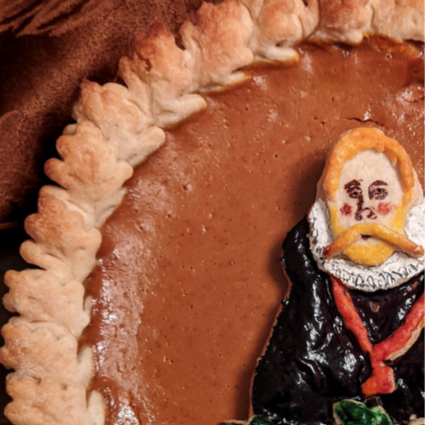One of my students happens to be a skilled baker. She made a special History of Science pumpkin pie for Thanksgiving. Seriously? When was the last time you saw a pumpkin pie with an image of Tycho Brahe on it? My students are great.
Tychonic Pumpkin Pie
